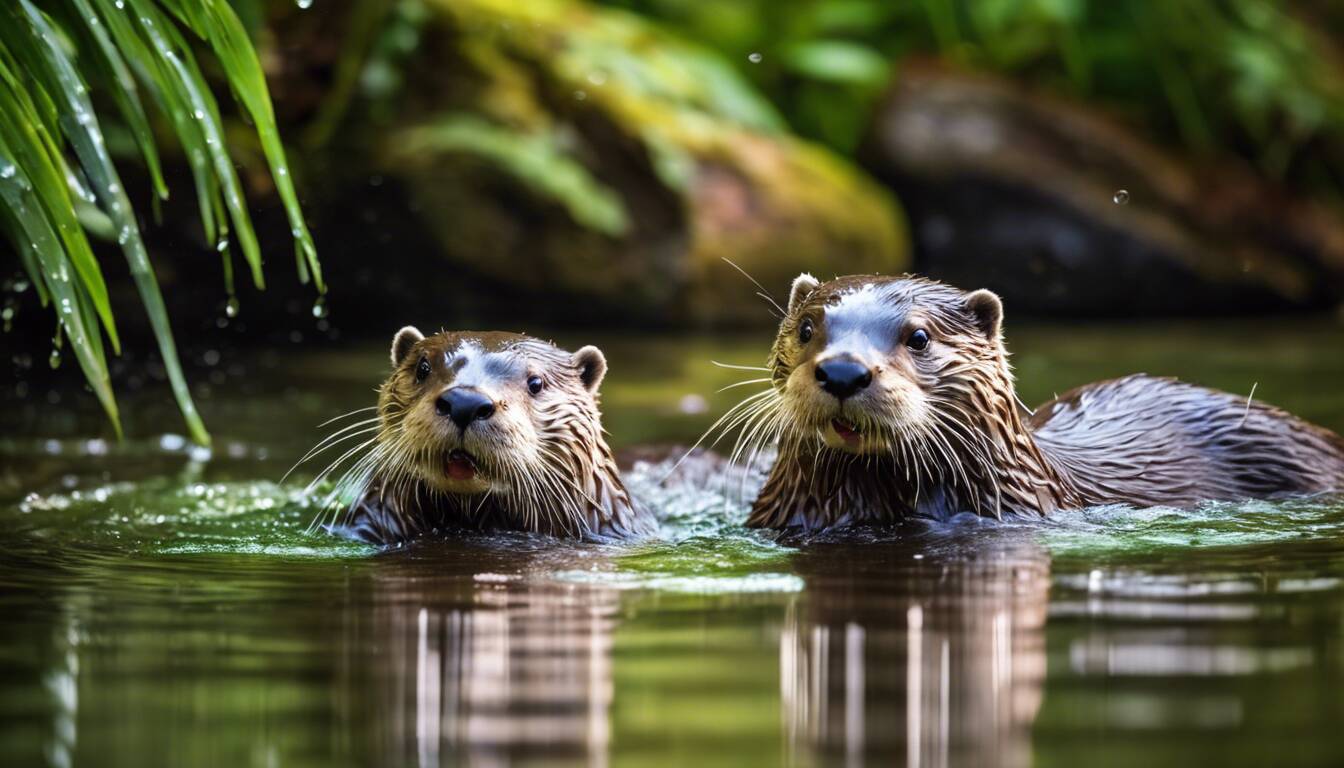Otters can be unique and intriguing pets. Mainly the Asian small-clawed otter and the North American river otter due to their smaller size and adaptability. Yet, it’s not as straightforward as adopting a cat or dog. It is essential they have a lot of physical and mental activities, otherwise they might not be happy. Also, laws in many places including the US and Europe, do not allow or strictly control having otters as pets because they are often at risk in the wild. Noting these points, you might want to look deeper into what it actually means to have an otter at home.
While otters may seem charming and intelligent, they are not suitable as pets. Otters are wild animals with specific physical and behavioral needs that are challenging to meet in a domestic setting. It is important to prioritize the well-being of these magnificent creatures by appreciating them from a distance in their natural habitats or visiting them at licensed animal care facilities such as zoos and sanctuaries.
Otter Species Fit for Domesticity
Not all otter species can thrive in a domestic environment, so choosing the right species is crucial, especially where ownership is legally allowed. The Asian small-clawed otter (Aonyx cinerea) and the North American river otter (Lontra canadensis) are commonly kept as pets due to their relatively smaller size and adaptability to captive environments. Before considering an otter as a pet, understanding the legal implications and conservation concerns related to this endeavor is vital.
The choice of species depends on several factors such as size, behavior, and adaptability to confined living spaces. The Asian small-clawed otter is particularly appealing due to its smaller size compared to other otter species. As the smallest otter species globally, it requires less space for exercise and play. Similarly, the North American river otter is valued as a pet for its adaptability and relative ease of care compared to larger or more specialized otter species.
It’s important to remember that owning otters as pets is illegal or highly regulated in most countries, including the US and Europe, due to their endangered or threatened status. Legal restrictions must be thoroughly acknowledged before considering any form of ownership.
Now let’s dig deeper into the peculiarities of each of these otter species to understand their characteristics and requirements for potential domesticity.
Personality Traits of Domestic Otters
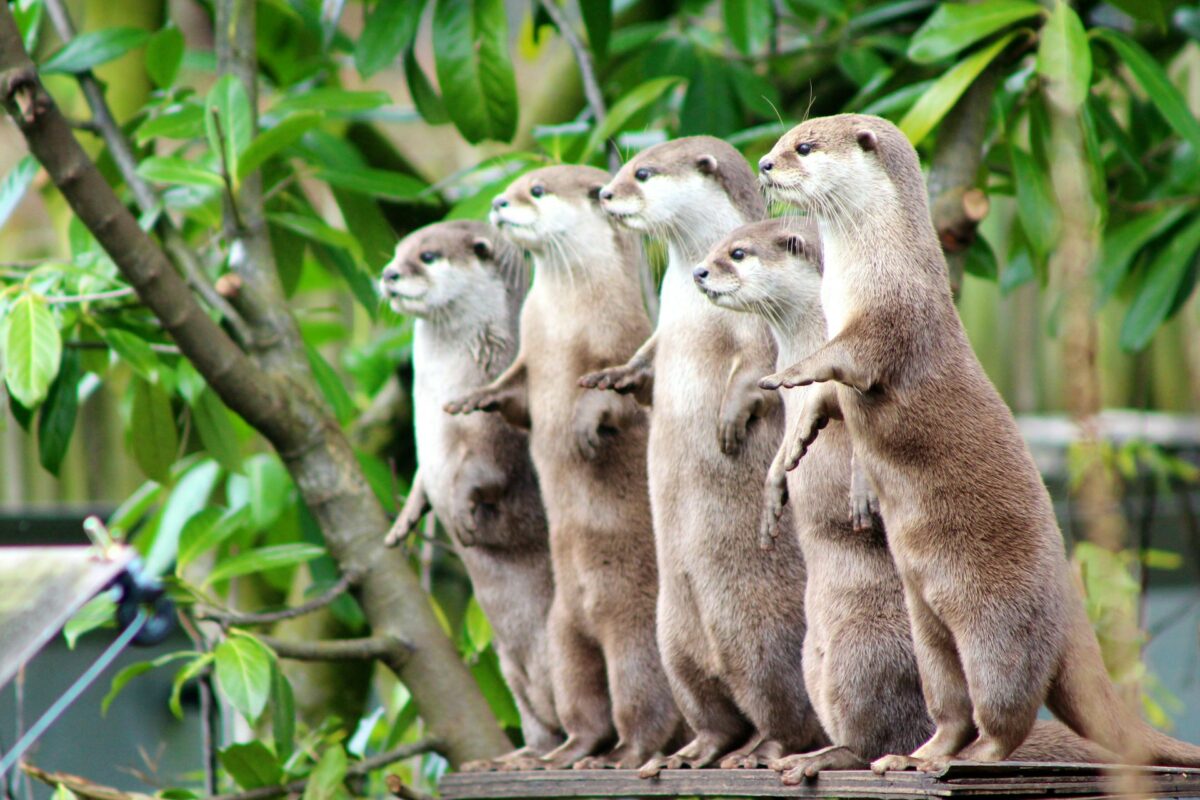
If you’ve ever seen a video or picture of a pet otter, you might think they’re just the cutest and most playful animals. And it’s true! Domestic otters are known for their remarkable intelligence, affectionate nature, playfulness, and curiosity. But what does all this mean in terms of living with one as a pet?
Firstly, otters are incredibly intelligent creatures, requiring lots of mental stimulation to keep them happy. Without this, they can become bored and may showcase destructive behavior around your home—imagine a smart kid with nothing to do; mischief soon follows!
Nurturing the mental well-being of domestic otters is crucial to ensure their overall happiness and prevent unwanted behaviors.
Secondly, these animals are highly social and form strong bonds with their human caregivers. Being accustomed to human interaction from an early age helps them understand the dynamics of socialization and ultimately thrive as part of the family unit. Additionally, their inquisitive nature and continuous exploration require a safe environment with secure boundaries to prevent escape attempts.
A domestic otter may exhibit territorial behavior, especially if there are other otters nearby. This behavior can be managed through proper training and enrichment activities.
Beyond this lively disposition lies an affectionate nature. Once they’ve bonded with their human companions, they can be incredibly loving and devoted.
While caring for a domestic otter is certainly challenging due to their high energy levels and specific care needs, many people find it incredibly rewarding to provide a nurturing environment where these intelligent and curious animals can thrive under the right circumstances.
Understanding the unique personality traits of domestic otters is essential for anyone considering bringing these playful creatures into their homes. It allows for better preparation and proactive measures to meet their needs effectively.
With a clear understanding of domestic otter traits, it’s crucial to now delve into the financial implications of owning these captivating animals.
Assessing Financial Implications of Otter Ownership
While the idea of having a pet otter may sound incredibly charming, it’s essential to recognize that it involves substantial financial responsibilities. The initial costs alone can be quite significant. If you plan to purchase or adopt an otter, you should be prepared to spend around $400. However, this is just the beginning.
Once you’ve acquired your otter, you’ll need to provide the right environment for them to thrive. This includes constructing a secure enclosure or habitat that not only keeps your otter safe but also protects your property and surroundings. This could involve building a space like a large, naturalistic pond surrounded by sturdy fencing and suitable shelter. The costs associated with this can range from a few hundred dollars to several thousand, depending on the size and complexity of the enclosure.
Initial Costs of Otter Ownership
Expense |
Estimated Cost |
|---|---|
Purchasing/Adoption |
$400 |
Enclosure Construction |
$500 – $10,000 |
Licenses and Permits |
Varies by location |
Veterinary Expenses |
Varies based on services |
In addition to construction expenses, you must secure the necessary licenses and permits to legally own an otter. These requirements can vary significantly depending on your location and may include obtaining wildlife permits or exotic animal licenses. It’s essential to research and understand the legal framework in your area before proceeding.
Consider the ongoing costs as well. Otters have specific dietary needs that typically consist of a combination of fish, shellfish, and other high-protein foods. A daily diet could cost anywhere from $5 to $15, varying based on factors such as availability and seasonality of specific food items. In addition, providing enrichment items such as toys, puzzles, and opportunities for play and mental stimulation are vital for an otter’s wellbeing. These items can add up over time.
Furthermore, veterinary expenses are crucial to consider. Regular check-ups and potential medical care should be factored into your budget as otters, like any pets, may require medical attention at some point in their lives.
Owning an otter is not just about purchasing one; it’s about providing proper care for their entire lifespan. These financial considerations should be carefully evaluated before deciding to bring an otter into your home.
Understanding the financial commitment required for owning an otter will better prepare you to make informed decisions about whether pet ownership is feasible for you.
Legal Implications of Otter Ownership
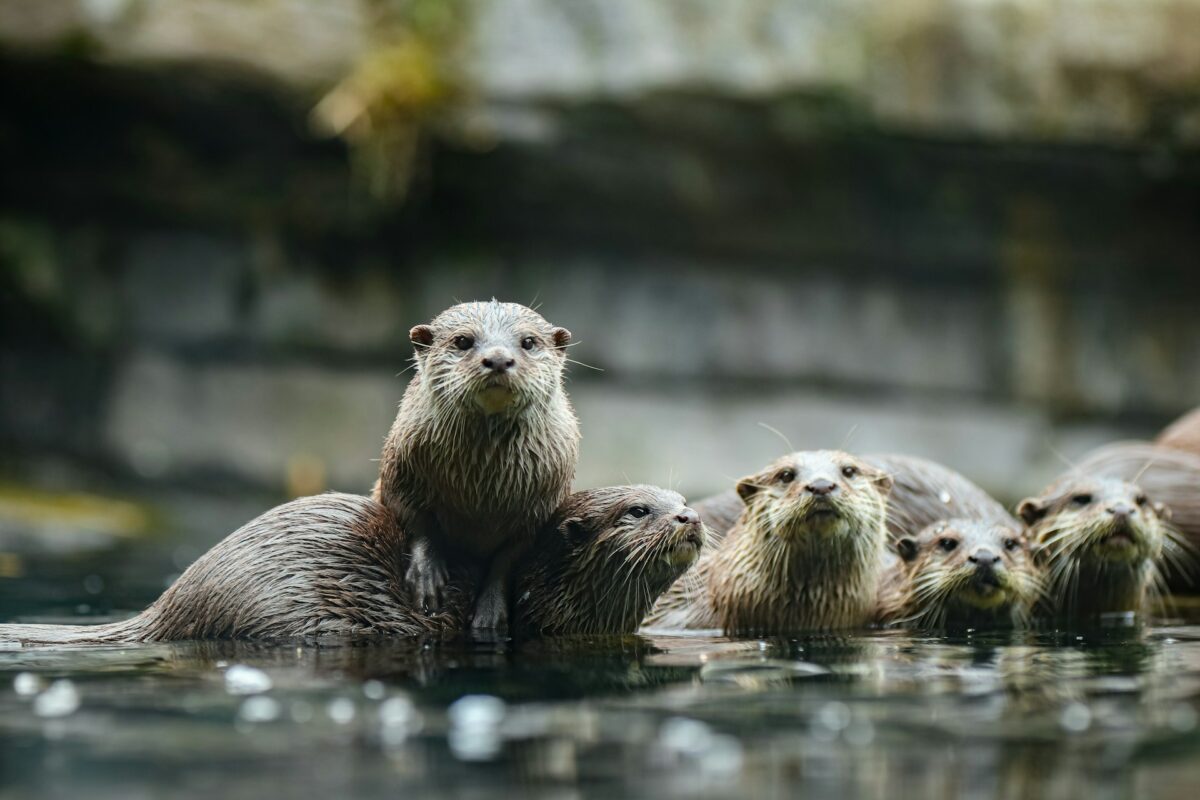
Owning an otter as a pet is not as straightforward as bringing home a puppy or a kitten. It’s crucial to understand that otters are wild animals and their ownership is regulated by laws aimed at protecting both the animals and the public. The laws surrounding otter ownership are in place to ensure the well-being of the otters and safeguard against potential risks they may pose.
In many states, owning an otter as a pet is either prohibited or requires special permits due to their protected status under Wildlife Protection Acts. These regulations stem from the fact that otters, particularly sea otters, face threats in the wild and are considered at risk, which renders them unsuitable for private ownership. It’s important to note that while some states allow the ownership of certain otter species, such as the Asian small-clawed otter, others strictly prohibit it or enforce stringent regulations to ensure that these wild animals are not taken from their natural habitat for domestic purposes.
Furthermore, these laws are in place to address the complex care requirements of otters. Otters have unique needs which demand specialized knowledge, time, and resources to provide them with appropriate care. This includes access to a suitable living environment that accommodates their need for space, enrichment, and activities that mimic their natural behaviors.
Violating these laws can result in severe penalties, including fines and confiscation of the otter. In addition to legal consequences, there can also be ethical implications associated with unauthorized otter ownership. This disobedience poses a threat to both the well-being of the animal and the ecological balance in its natural habitat.
Before considering owning a pet otter, it is imperative to thoroughly research the specific regulations and requirements in your state or region. Understanding and adhering to these laws will not only mitigate legal risks but also contribute to promoting responsible pet ownership, prioritizing animal welfare and environmental conservation.
Understanding the legal implications behind owning an otter is essential for ensuring compliance with wildlife protection laws and upholding animal welfare standards. Their protected status calls for responsible ownership practices that align with regulatory requirements and contribute to conservation efforts.
Accommodating an Otter’s Physical Needs
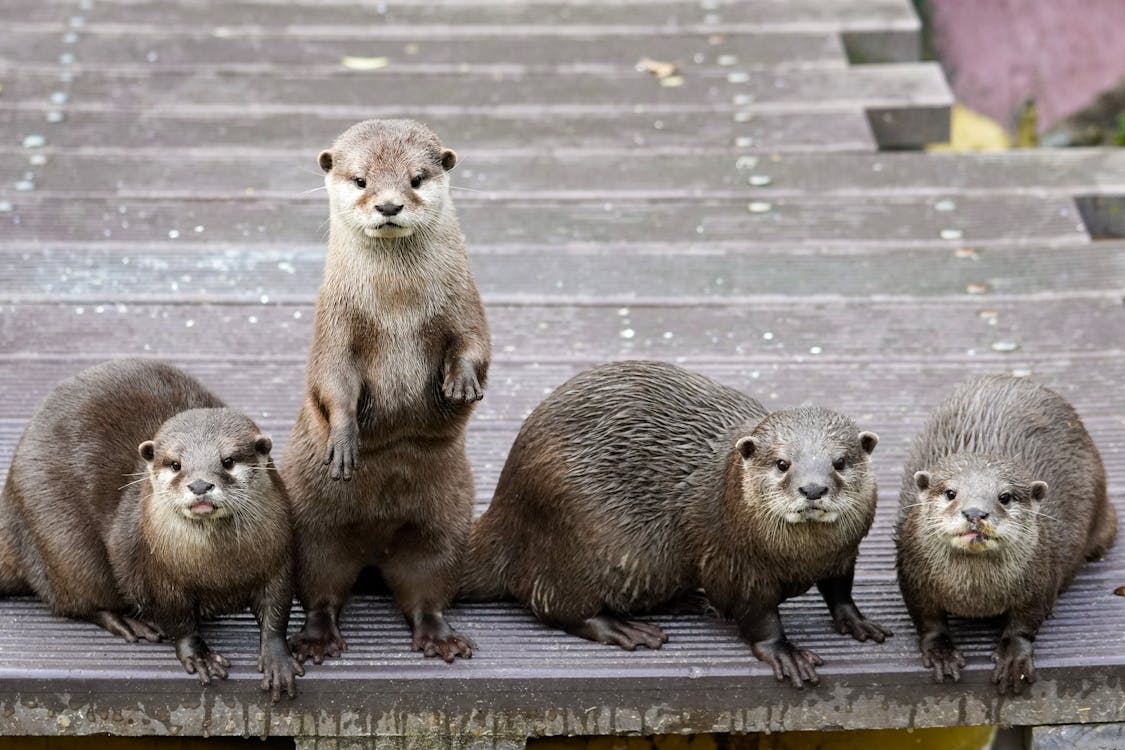
Ensuring the physical well-being of pet otters is paramount since these remarkable creatures are semi-aquatic animals, meaning they split their time between land and water. This makes it essential to provide them with an environment that mimics their natural habitat as closely as possible.
The most fundamental need for pet otters is access to a large water feature where they can swim, dive, and exhibit their natural behaviors. This could be a specially designed pool or a spacious pond, as otters are highly active and playful swimmers. The pool should be at least 20 feet long, 10 feet wide, and 3 feet deep to cater to their swimming and diving needs. Without such an environment, otters can become stressed and frustrated, leading to behavioral issues and health problems.
Creating an enriching living space for otters goes beyond providing a suitable water feature. These animals thrive on exploration, climbing, and play. Therefore, ample space is vital for their mental and physical well-being. Typically, a pair of otters require an outdoor enclosure of at least 1,000 square feet to enable them to move around freely and engage in their natural behaviors.
Otters have unique physical needs and behaviors that must be accommodated in a domestic setting.
In this living space, incorporating natural elements like rocks, logs, and vegetation can create an environment reminiscent of their natural habitat. These elements serve multiple purposes – from providing places for otters to climb on, rest, and hide to offering mental stimulation through mimicry of their wild surroundings.
Understanding the importance of these physical needs for otters is integral in providing them with a fulfilling life in captivity. It’s important for prospective otter owners to recognize that meeting these requirements is challenging within a typical home environment.
Meeting an otter’s physical needs can be a significant challenge due to their requirement for access to a large water feature for swimming and diving as well as ample space for exploration and play. This underscores the point that otters are indeed unique animals with specific environmental needs that must be met in captivity.
How to Care for Your Otter at Home
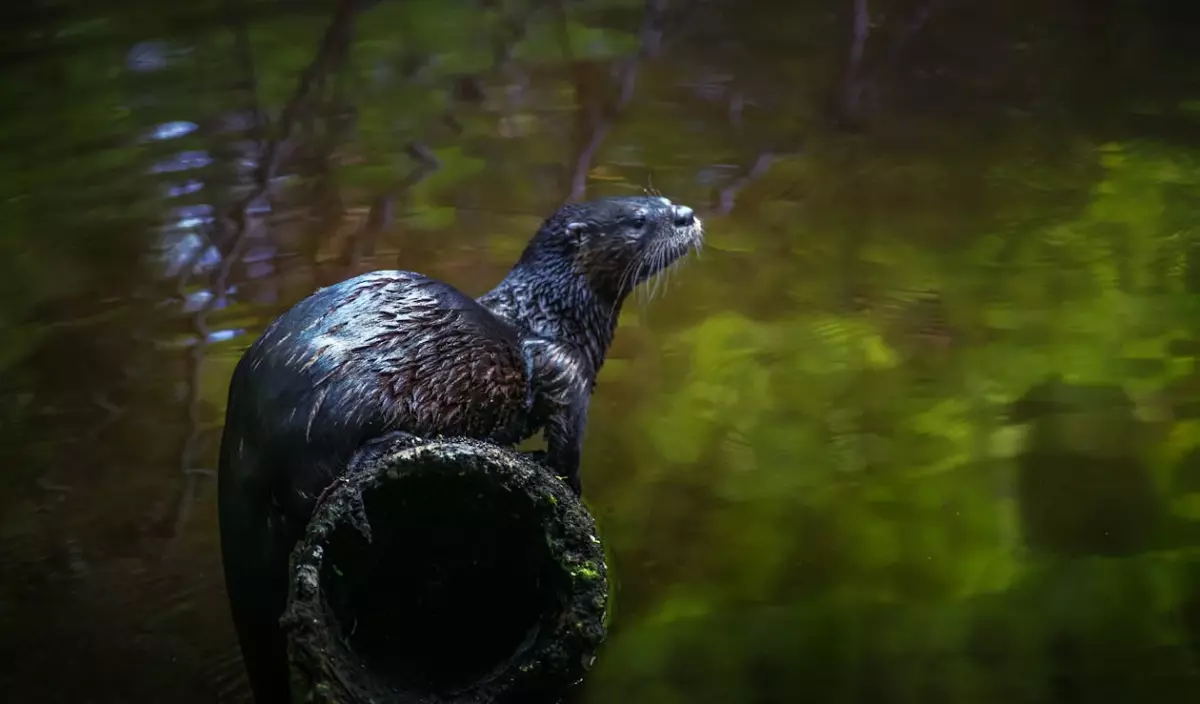
Caring for an otter at home can be a deeply enriching experience, but it comes with significant responsibilities and challenges. If you’re considering bringing an otter into your life, there are several key areas you must focus on to ensure their well-being and happiness.
Providing the Right Nutrition
Otters have specific dietary requirements that need to be carefully met to keep them healthy. In the wild, they primarily feed on fish, crustaceans, and mollusks. When kept as pets, it’s essential to replicate this diet as closely as possible to ensure they receive the necessary nutrients. High-quality fish-based diets are typically recommended for pet otters, and it’s vital to consult with a veterinarian or an otter specialist to develop a proper feeding plan. The right balance of proteins, fats, and vitamins is crucial for their overall health and well-being.
Creating an Enriching Environment
Adequate environmental enrichment is pivotal to maintaining an otter’s mental and physical health. Otters are highly intelligent and curious animals that thrive in dynamic environments. Providing them with engaging activities such as puzzle feeders, toys, and simulated foraging opportunities can help prevent boredom and reduce stress. Additionally, incorporating water features like shallow pools or water-filled enclosures can cater to their natural inclination for swimming and aquatic play, promoting a sense of well-being.
Ensuring Regular Veterinary Check-ups
Regular veterinary check-ups are indispensable in safeguarding the health of your pet otter. Due to their unique physiological and behavioral traits, otters require specialized veterinary care to monitor their overall condition and address any potential health issues promptly. Collaborating with a veterinarian experienced in exotic animal care is critical in ensuring that your otter receives comprehensive medical attention, including routine examinations, vaccinations, parasite control, and dental care.
Addressing Social Needs
As highly social creatures, otters thrive on companionship and interaction. Human owners need to dedicate ample time to engage with their pet otters through playtime, training sessions, and mental stimulation activities. Fostering a strong bond while offering consistent positive reinforcement can contribute significantly to their emotional well-being and mitigate potential behavioral issues arising from loneliness or boredom.
Ethical Considerations
Acknowledging the ethical considerations associated with keeping otters as pets is pivotal due to the complex nature of otters’ needs and the legal regulations surrounding their ownership. Otters are wild animals best suited for natural habitats. Emphasizing the importance of ethical treatment and conservation efforts for otters is paramount. Professional care facilities such as zoos, rehabs, and sanctuaries are better equipped to provide the necessary level of care for otters to thrive in captivity.
By being mindful of these critical elements in caring for pet otters at home and recognizing the ethical considerations associated with ownership, individuals can make informed decisions regarding otter companionship while prioritizing the welfare and conservation of these remarkable animals in their natural habitats.
In conclusion, while caring for an otter can be fulfilling, it’s important to remember that they are wild animals best suited for their natural habitats. Responsible decision-making when it comes to owning an otter is imperative for the welfare of these extraordinary creatures.
